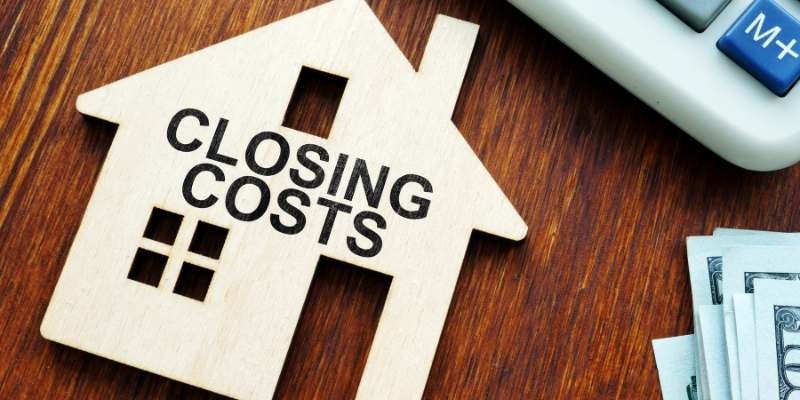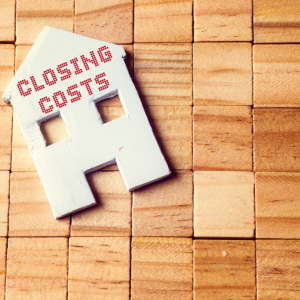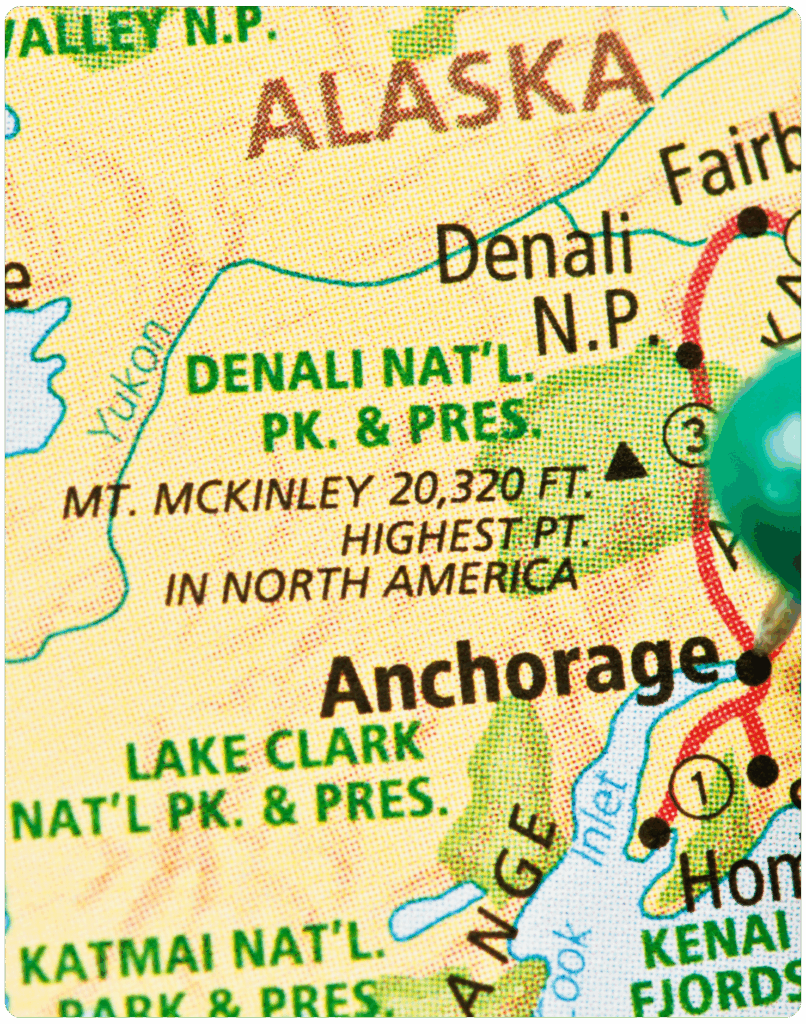
Selling a home in Anchorage comes with a long list of fees that can be overwhelming, including title insurance, recording fees, property taxes, and other costs that must be settled before you can hand over the keys. Most sellers in Anchorage pay around 2.7% of their home’s sale price just in closing costs, not including agent commissions. Using a closing costs calculator takes the guesswork out of the process. It helps you plan effectively, especially when working with a reliable company that buys homes in Anchorage and surrounding Alaska cities.

What are closing costs in Anchorage, AK?
Closing costs refer to all the fees you pay to finalize the sale of your home. In Anchorage, sellers handle most of these. Some of the things included are title searches, insurance policies, and recording fees.
You’re looking at somewhere between 2% to 3% of your sale price, so a $400,000 home could run you $8,000 to $12,000 in closing fees alone. At least Alaska doesn’t have transfer taxes like other states do, which saves you a few thousand bucks right there.
Local government offices set some of these costs, but others can be shopped around for. Your property taxes are prorated based on the number of months you owned the home during the year, and with Alaska’s average rate of 1.07%, that can add up depending on when you sell.
Anchorage, AK property closing costs calculator
These calculators help you figure out what you’ll actually pay. Each one has its own setup and shows you different angles on your closing costs.
1. HomeLight Alaska Seller Closing Cost Calculator
HomeLight’s calculator provides you with Alaska-specific numbers from the start. You enter your selling price and mortgage balance, and it gives a detailed breakdown of your net proceeds after every fee is deducted.
The tool includes agent commissions and even moving expenses, which most calculators skip over entirely. It’s updated with 2025 data and shows you what a typical Alaska seller pays for each cost category.
You can see how your home compares to the state’s median selling price of $379,600 and adjust from there.
2. Real Estate Witch Seller Closing Costs Calculator for Alaska
The Real Estate Witch calculator lets you customize basically everything. You can adjust each cost, such as title fees, buyer incentives, and recording fees, based on what you’re actually expecting to pay.
The calculator also shows you a side-by-side comparison of traditional 6% agent fees versus discounted 1.5% listing fees. This means you can see how much you’d save by going with a lower commission agent.
It breaks costs down by percentage of your sale price, which makes it easier to understand where your money’s actually going. Real Estate Witch updates their numbers regularly and pulls from actual Alaska transactions.
3. Zillow Closing Cost Calculator
Zillow’s tool is suitable for both buyers and sellers, making it a bit more general than the Alaska-specific ones. You can experiment with various loan scenarios to see how closing costs change based on your down payment, interest rate, and whether you’re purchasing discount points.
The calculator explains each fee in plain English, which helps if you’re trying to understand what “origination fees” or “prepaid expenses” actually mean. It defaults to national averages, so you’ll want to adjust the numbers to match Alaska rates.
The tool is useful if you’re selling one home and buying another, as it allows you to calculate costs for both transactions.
4. Clever Real Estate Alaska Seller Closing Costs Calculator
The Clever Real Estate calculator breaks everything down into three phases: before you sell, during the sale, and after closing. This setup helps you track when each cost is incurred and plan your budget accordingly.
The calculator includes home prep costs and renovations in the “before” section, then shows your realtor fees and closing costs during the sale. It also factors in your moving expenses after you close.
You can enter your exact mortgage payoff amount and see your actual cash-to-close number. Clever also shows potential savings if you use their agent matching service, which connects you with agents who charge lower commission rates.
How to calculate closing costs in Anchorage, AK
First, you need to determine your home’s sale price. You can obtain a more accurate estimate by getting a comparative market analysis from a realtor, rather than relying on an online tool’s estimate.
Then you’ll need to add up all the individual fees that come with selling. Title services typically cost around $886, and recording fees are usually $65 in Alaska. Your property taxes get calculated by multiplying your home’s assessed value by 1.07%, then figuring out what portion of the year you owned it.
So if you’re selling in June, you’re paying for January through June. Don’t forget to include the owner’s title insurance, which averages about $1,180 for a median-priced Anchorage home.
Most sellers also factor in agent commissions and any buyer incentives they’re planning to offer. The calculators above allow you to adjust all these numbers based on your specific situation. Some of them will even show you what happens if you negotiate certain costs with the buyer.
What Makes Up Anchorage Closing Costs
Your closing costs break down into several categories, and each plays a role in completing your home sale.
Title service fees
Title companies charge around $886 to go through public records and verify that you actually own the property free and clear. They’re ensuring that there are no unexpected liens, unpaid taxes, or other claims lurking in the background that could jeopardize your sale.
This fee covers the research time, the paperwork for selling the House, and all the behind-the-scenes coordination that happens between you, the buyer, and the title company. It’s one of those costs that seems annoying until you realize it protects you from being sued by someone claiming they have a stake in your property.
The title company essentially puts its reputation on the line by certifying that the property’s ownership history is clean.
Owner’s title insurance
This insurance gets into action if someone crawls out of the woodwork claiming they have rights to the property after you’ve already sold it. Perhaps a previous owner forged a signature on a deed in 1987, or there’s an undisclosed heir whom nobody knew about.
Owner’s title insurance covers the legal fees and potential losses if any of these nightmares actually happen. In Alaska, sellers typically pay for this policy on behalf of the buyer, and the cost is approximately $1,180 for a median-priced home.
It’s a one-time premium that protects the buyer for as long as they own the property. Most buyers expect sellers to cover this cost, and refusing to pay it might make your home less attractive compared to other listings.
Recording fees
Your local government office charges approximately $65 to enter the deed transfer into public records officially. This fee makes the sale legally binding and creates a paper trail showing exactly when ownership changed hands.
Without recording the deed, your buyer lacks proof of ownership, which becomes a significant issue if they ever attempt to sell or refinance. The fee varies slightly by municipality, but it’s one of the smallest costs you’ll pay at closing. Still, it’s required by law, so there’s no getting around it.
Property taxes
You’ll settle up on property taxes for whatever chunk of the year you owned the home. Alaska’s average property tax rate sits at 1.07% of your home’s assessed value, but this varies depending on which part of Anchorage you’re in.
If you sell your house on July 15th, you’re responsible for property taxes from January 1st through July 15th. The buyer will cover the costs for the remainder of the year.
The title company calculates this prorated amount at closing and deducts it from your proceeds. Keep in mind your property taxes are based on the assessed value, not your sale price. If you’ve been living there a while without reassessment, the numbers might be lower than you’d expect.

Who pays closing costs in Anchorage?
Both sides of the deal end up paying something, but sellers definitely carry the heavier load when it comes to closing costs.
Seller responsibilities
You’re covering the bulk of the closing costs as the seller. That means title service fees, owner’s title insurance, recording fees, and your share of the prorated property taxes all come out of your pocket at closing.
Most Anchorage sellers also pay both the listing agent commission and offer to cover the buyer’s agent fee as a concession to make their property more competitive.
Then there are the unexpected costs that arise. If you agreed to a repair credit after the inspection or are including a closing cost credit to finalize the deal, you need to prepare for these.
All of these costs are subtracted from your sale proceeds before you receive any money. The average seller in Alaska pays about 2.7% of the sale price in closing costs alone, not including real estate agent commissions, but Anchorage Home Buyers can help you understand and manage these expenses.
Buyer responsibilities
Buyers handle their own mortgage-related expenses, and it’s actually a pretty long list. They’re paying for the loan origination fee, the home appraisal, the inspection, and their lender’s title insurance policy.
They must cover their down payment and any prepaid costs, such as homeowners’ insurance and the first few months of property taxes, which are held in an escrow account.
Since the 2024 NAR settlement, buyers are now responsible for negotiating and paying their own agent’s commission directly, rather than having sellers automatically cover it. That said, many sellers still offer to pay the buyer’s agent fee as an incentive, as it makes the property more affordable and attracts more buyers.
Negotiable costs
Pretty much everything is negotiable except government fees and taxes. You can ask the buyer to cover some of your closing costs, especially if you’re in a hot seller’s market where homes are selling quickly.
Buyers might agree to pay for things like title insurance or recording fees if it means they get the house they want. You can also shop around for title companies and get quotes from multiple providers.
The fees aren’t as standardized as you’d think, and you might save a few hundred bucks by going with a different company. Some sellers negotiate repair credits instead of actually fixing things, which saves time and keeps the sale moving forward.
Your real estate professional’s commission is negotiable, too, and some agents will work for lower rates depending on how easy your home is to sell.
Average closing costs in Anchorage, AK
Anchorage sellers pay an average of 2.7% of their home’s sale price in closing costs. That works out to about $10,246 on a $379,600 home, which is the median price in Alaska.
If you’re selling a $500,000 house, you’re looking at closer to $13,500 in closing fees alone. These numbers don’t include real estate commissions, which add another 5% to 6% on top of everything else.
The costs scale up with your home’s value, so a million-dollar property means you’re writing checks for around $27,000 just to close the deal.
Alaska actually comes in on the lower end compared to states with hefty transfer taxes. Places like Washington or New York can incur closing costs of up to 4% or 5% of the sale price.
The breakdown usually includes roughly $886 for title services, $1,180 for owner’s title insurance, $65 for recording fees, and then your prorated property taxes on top of that.
Some sellers also budget around 2% of the sale price for buyer incentives or concessions. These aren’t technically closing costs, but still come out of your proceeds at the closing table.
How do closing costs differ based on your loan type
The type of loan your buyer is using can actually affect what you end up paying at closing, especially when it comes to negotiations and concessions.
Conventional loans
Conventional loans are the simplest for sellers because they don’t come with numerous extra requirements or restrictions. Your buyer’s lender will order an appraisal and conduct their underwriting, but you’re not responsible for any additional fees or certifications.
The main thing that might affect you is if the appraisal comes in low. That’s when you’re either dropping your price, meeting somewhere in the middle, or the buyer’s bringing more cash to close the gap.
Buyers with conventional loans typically have stronger finances and bigger down payments, which means fewer requests for seller concessions. They’re also less likely to ask you to cover their closing costs since they usually have the cash reserves to handle it themselves.
That said, you might still offer to pay their agent’s commission or include some repair credits if it helps close the deal more quickly.
FHA loans
FHA loans can get a little trickier for sellers because they come with stricter property standards. The home must pass an FHA appraisal, which means that if your inspector identifies any issues, such as peeling paint or a wobbly handrail, you will need to address these before the sale is finalized.
FHA buyers also tend to have smaller down payments, sometimes as low as 3.5%, so they’re more likely to ask you for help with closing costs. You can offer up to 6% of the purchase price in seller concessions for an FHA loan, which may include covering some of their fees or providing a credit for repairs.
The upside is that FHA buyers comprise a significant portion of the market, particularly for starter homes and mid-priced properties. Being willing to work with them significantly expands your buyer pool. Just be prepared for a few extra steps during the inspection and appraisal process.
VA loans
VA loans are designed for military buyers, but can be a challenge for sellers who don’t understand how they work. The VA has its own appraisal requirements, and if the appraiser flags any issues (e.g., a missing handrail or a roof that needs replacement soon), you’ll have to address them before closing.
VA loans also limit what fees the buyer can pay, which means some of those costs might get pushed onto you as the seller. The buyer may not be able to pay for items such as the VA funding fee or certain closing costs, so sellers sometimes end up covering more than they would with a conventional loan.
On the other hand, VA buyers are not required to make a down payment. They’re often highly motivated because they’ve been house hunting with limited inventory. If you’re open to working with VA loans, you’re tapping into a buyer pool that’s ready to move fast and close quickly once everything checks out.
Hidden costs to consider when selling in Anchorage
You’ve got your standard closing costs figured out, but then all these other expenses sneak up on you when you’re selling a house. Some of these costs arise before you even list the property, while others become apparent at closing or months later. Here’s what most Anchorage sellers often overlook until it’s too late.
| Hidden Cost | Average Amount | What It Covers |
| Home prep costs | $9,473 | Deep cleaning, landscaping, minor repairs, fresh paint, staging rental furniture |
| Mortgage prepayment penalty | Varies by lender | Early payoff fees if your loan has this clause buried in the agreement |
| Local moving expenses | $600–$900 | Truck rental, movers, and packing supplies for staying in Anchorage |
| Long-distance moving | $4,000–$7,000 | Professional movers, transportation, and storage if you’re leaving Alaska |
| HOA transfer fees | $200–$500 | Administrative fees your HOA charges when ownership changes hands |
| Prorated HOA dues | Varies | Your share of annual or quarterly dues for the time you owned the home |
| Home warranty | $300–$600 | One-year coverage for appliances and systems that buyers often request |
| Capital gains taxes | Varies | Federal taxes on profit over $250,000 (single) or $500,000 (married) if you don’t qualify for exclusion |
Home preparation costs often catch people off guard because they add up faster than you might think. That faucet you’ve been living with for two years suddenly needs fixing, and the yard needs serious help after a long Alaska winter.
Moving expenses depend entirely on where you’re going. Staying local is manageable, but traveling to the Lower 48 can get expensive quickly. The real pain is capital gains taxes if you’ve made a massive profit or haven’t lived in the home long enough to qualify for the IRS exclusion.
That bill doesn’t appear at closing, but it’ll be due when you file your taxes. You need to plan ahead and possibly consult with an accountant to determine what you’ll actually owe.

Ways to reduce your closing costs
You’re already paying a lot to sell your house, so finding ways to trim these costs can put a few extra thousand back in your pocket.
Shop around for title insurance.
Title insurance rates aren’t as fixed as you might think, and different companies charge different amounts for the same coverage. Contact three or four title companies in Anchorage and request quotes based on your home’s sale price.
You might find that one company charges $1,180, while another charges only $950 for the same policy. That’s a couple of hundred bucks saved just from making a few phone calls.
Many title companies offer package deals when you bundle services, so be sure to ask about available discounts when comparing quotes. While your real estate expert may have a preferred title company, you are not required to use it. You can select the provider that gives you the best rate, especially if you’re working with Bethel cash buyers and other cities in Alaska.
Negotiate with your buyer.
Everything’s on the table when you’re hammering out the sale agreement, and buyers are often willing to cover some costs if it means they get the house. You can ask them to pay for recording fees, part of the title insurance, or even split some of the other closing costs with you.
This works exceptionally well in a seller’s market when buyers are competing for properties and need to make their offers more attractive. You simply need to have your agent frame the negotiations correctly. Perhaps you agree to their asking price, but they cover an additional $500 in fees, or you meet in the middle on repairs, while they handle the recording costs.
Some buyers will say no, but plenty are flexible if it keeps the deal moving forward.
Time your sale strategically
Selling later in the year means you’ll pay less in prorated property taxes, as you only owe for the months you actually owned the home. If you close in November instead of February, that’s nine fewer months of property taxes coming out of your proceeds.
On a home with $4,000 in annual property taxes, selling in November instead of February saves you about $3,000. Obviously, you can’t always control your timeline, but if you have flexibility, think about when you close and how it affects your tax bill.
Also, talk with your real estate expert about the Anchorage market. Selling during peak season can sometimes yield a higher price, even if it means paying more in prorated taxes. Understanding the timing is key, and here’s how Anchorage Home Buyers can help guide you through the process.
Consider a cash offer.
Cash buyers often cover their own closing costs or request fewer concessions, as they’re not subject to mortgage requirements and lender fees. You might also save on some seller-paid costs because no lender is demanding specific insurance policies or inspections.
The trade-off is that cash offers usually come in lower than financed offers. However, when you consider the savings on closing costs and the faster timeline, it can end up being quite close.
Additionally, you’re eliminating the appraisal contingency and the stress that comes with worrying whether the buyer’s loan will be approved.
Use a discount real estate expert
Agent commissions aren’t technically closing costs, but they’re paid at closing, and they’re your most significant expense by far. Traditional agents charge 5% to 6% total, but discount brokers and flat-fee agents work for 1.5% to 2.5% and still provide full service.
On a $400,000 home, dropping your listing fee from 3% to 1.5% saves you $6,000 right there. Some agents will negotiate their rate if your home’s in excellent condition and priced to sell quickly. They know it’ll be an easy listing, so they’re willing to take a smaller cut.
Just make sure you’re not sacrificing service quality for savings, because a bad agent can cost you way more than you’d save on commission.
Key takeaways: Anchorage, AK closing costs calculator
Using an Anchorage closing costs calculator gives you a realistic picture of what you’ll actually walk away with after selling your home. These calculators break down every fee, so you’re not blindsided at the closing table. You can plug in your home’s sale price, mortgage balance, and other details to see exactly how much money is deposited into your bank account once all the costs are deducted. If you’d rather skip the traditional sale hassles and close fast without dealing with repairs or buyer financing drama, call Anchorage Home Buyers at (907) 331-4472 now! They handle the closing costs and can close in as little as one to two weeks. When planning your home sale, calculating expenses in different parts of Alaska, such as Fairbanks, can help you budget accurately. Use our Fairbanks, AK closing costs calculator to estimate fees and related costs specific to that market.
Helpful Anchorage Blog Articles
- What Taxes Do I Have To Pay When I Sell My House In Anchorage, AK
- Anchorage, AK Capital Gains Tax Calculator 2025
- Anchorage, AK closing costs calculator
- Anchorage, Alaska Cost of Living: Is It Affordable?
- Anchorage, Alaska Property Tax Rate
- Paperwork for Selling a House in Anchorage, AK
- Can an Executor of the Will Sell a property in Anchorage, AK?
- How to Sell an Apartment in Anchorage, AK
- Should I Replace My Roof Before I Sell My House in Anchorage, AK?
- Do I Need to Paint My House in Anchorage, AK, to Sell It?
- Do I Need a Lawyer to Sell My House in Anchorage, AK
- How Can Heir Property Be Sold in Anchorage, AK?

